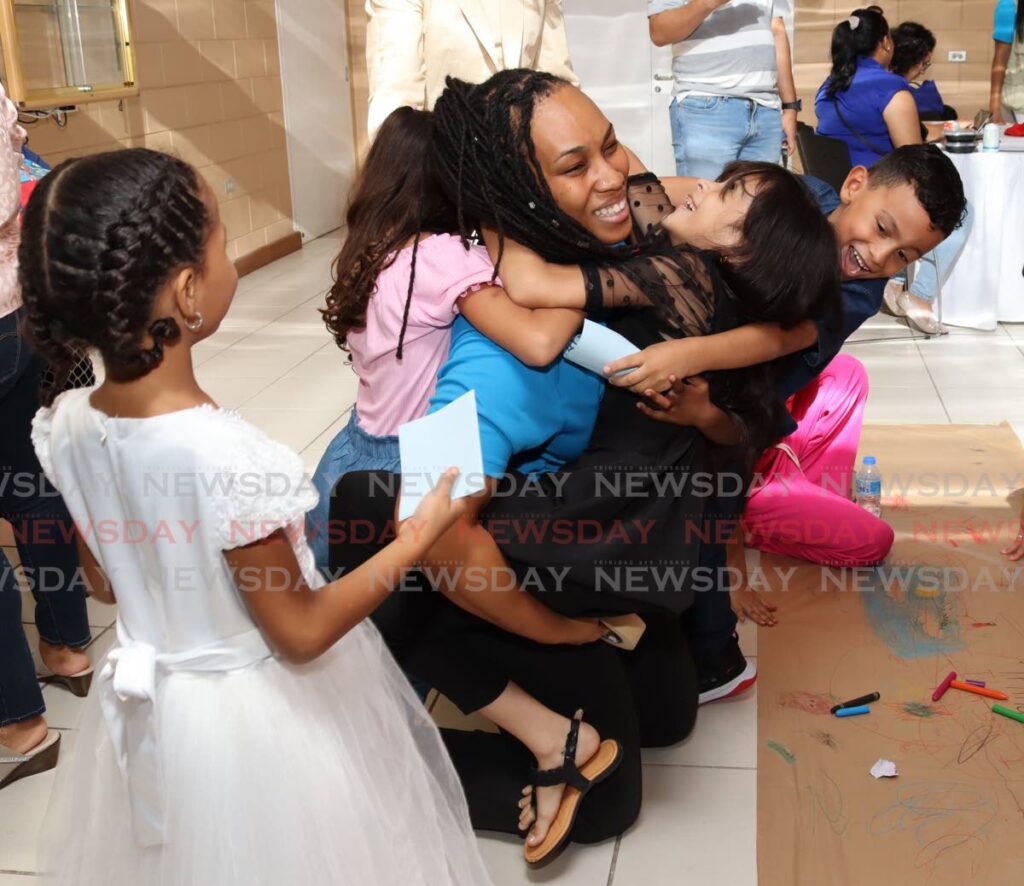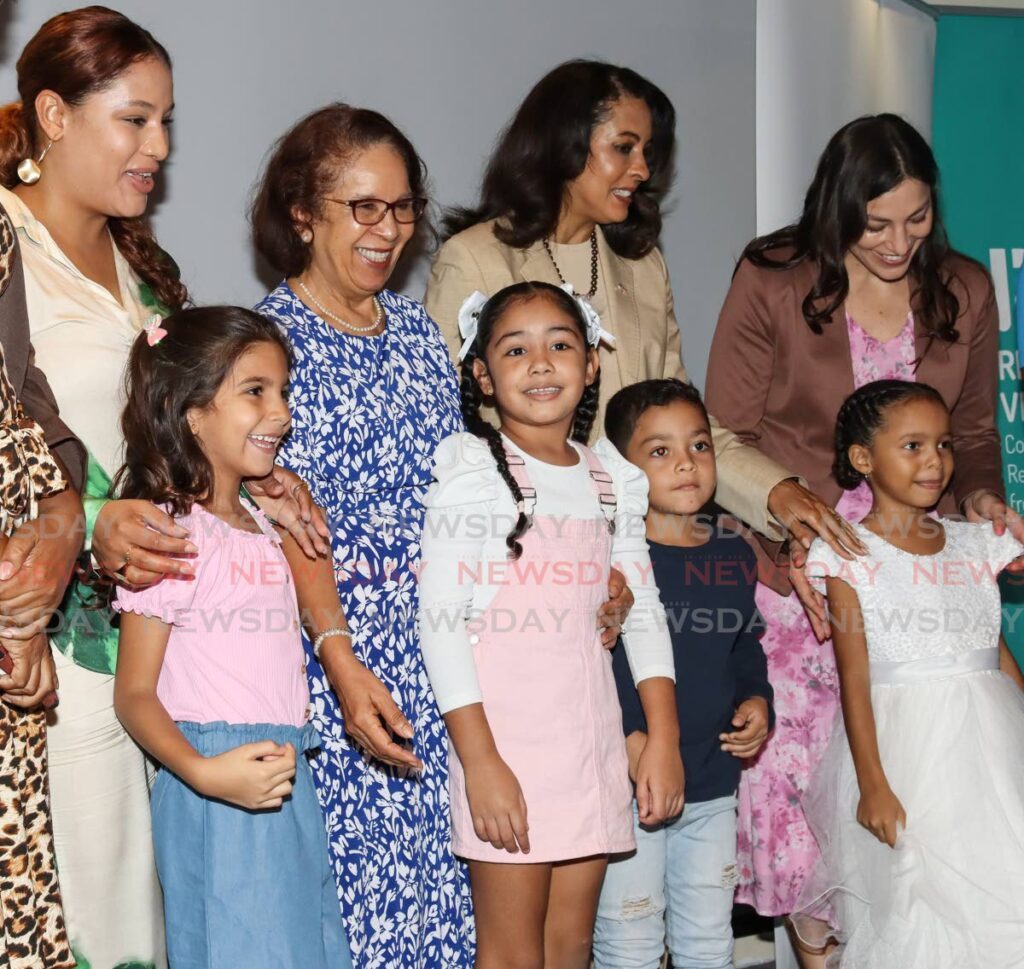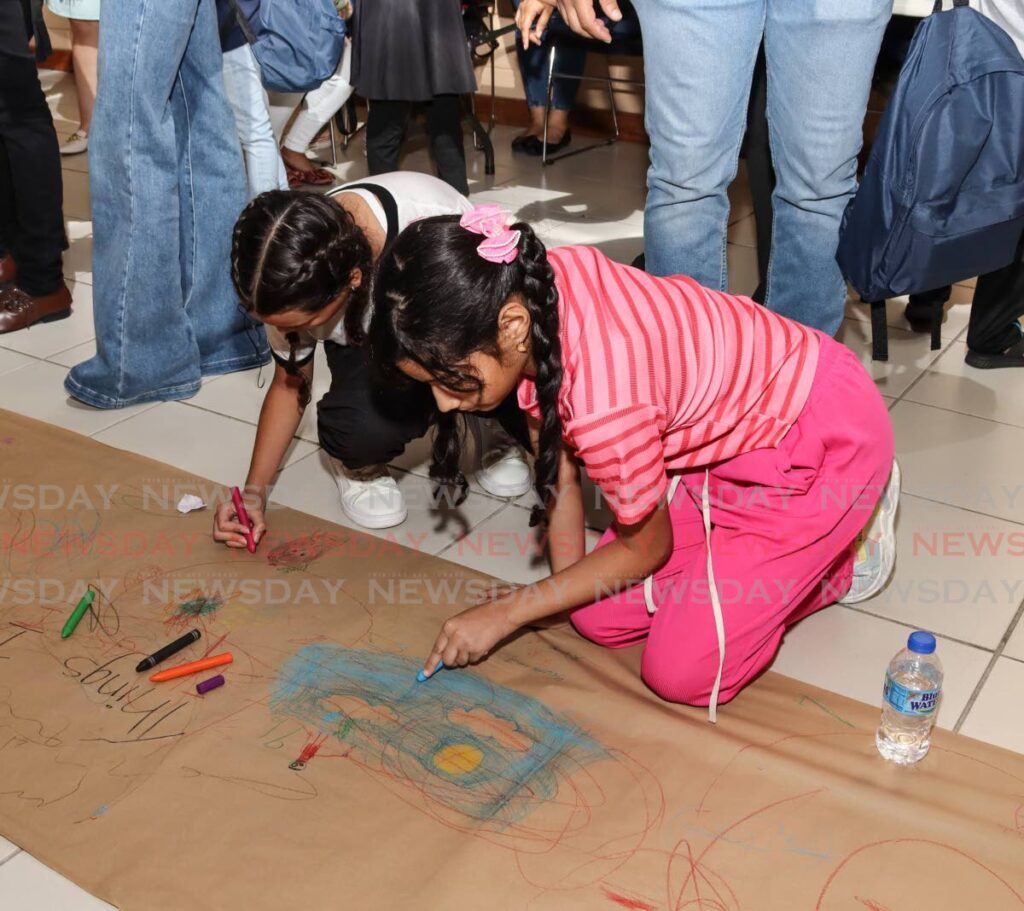UNHCR donates school kits to Venezuelan children

The UN Refugee Agency (UNHCR) distributed education kits on August 30, to children registered under the Migrant Registration Framework who have been accepted into local schools for the 2024-25 school year.
Seventeen refugee children who will study at Trinidad and Tobago schools for the first time and seven local children were given kits.
UNHCR said the kits contained book bags, books, writing materials, uniforms, shoes and other essential tools to support the children’s academic journeys.
On August 19, the Ministry of Education held a ceremony to present the parents of Venezuelan children with migrant student exemption letters.
At that ceremony, Chief Education Officer Dr Peter Smith said applications were made on behalf of 187 Venezuelan children, and after interviews, 111 children were successful and 23 were permitted to attend school in the new academic year.
Four will be placed at government schools, 18 at denominational schools and one will attend a private school.
The initiative was supported by UNICEF and the Catholic Education Board of Management.
Amanda Solano, UNHCR head of office in TT, suggested the children were making history and pointed out this will be the first time in a classroom for some of the children.
“This event marks a crucial step towards providing equal opportunities for all children.”
She spoke about the importance of education to migrant children in particular.
“Education is a crucial pathway to self-reliance. For many refugees and migrants in Trinidad and Tobago, their education has been interrupted for months or even years. On average, UNHCR estimates that globally, refugees miss out on three to four years of schooling because of forced displacement.”
Solano said the physical classroom experience is important to their overall development.
“In addition to being a place of academic learning, schools provide children with core social skills, emotional support, and a nurturing environment for their well-being. For refugees, the opportunity to enter a school environment gives students the tools necessary for overall development and serves as a strong step toward their social and cultural inclusion, helping them learn, make friends, and find hope.”

She commended the government for opening the country’s classrooms and said the UNHCR remains committed to supporting the Government on its next steps on access to education to all children.
“The government’s approach ensures that refugee students can obtain recognised qualifications, opening doors to further education and employment.”
US ambassador to TT Candace Bond said the kits represented more than just a physical resource.
“The education supplies we are handing out today are not just paper and pencils but tools to empower our students with confidence and creativity.”
She said during her time as a member of the Los Angeles County Office of Education, she witnessed what can happen when resources are given to children who don’t have what they need to succeed.
“When we give them educational supplies like these, we help them focus less on being prepared for class and more on being there. We give them the freedom to learn, explore their passion and think critically.”
In a spirited address to the children, UNICEF education officer Tracey Lucas described the opportunity to start school in TT as an adventure.
She urged the children to use their heads, hands and heart to do their best and be their best on this new adventure.

“Your heart this is where you have all your feelings and emotions…All of these emotions are important to your experience and what you learn about in school because this is what will help you understand yourself and everybody else and live in peace and harmony with everyone.”
Santiago Gonzalez, 11, who will attend Savonetta Private Primary School, said he has been in Trinidad since he was six and is excited to get to school and study maths.
“I’m going into (Standard) Five. I’m very happy and excited because I get to meet my friends. I met them already but I now can meet them officially.”
There are still approximately 2,000 Venezuelan minors in TT who are not enrolled in the education system.
Lucas said UNICEF is among the many agencies working with the government to ensure these children are eventually enrolled.
“All children have the right to education, no matter where they come from, what they look like, what language they speak and what abilities they have.”
Education Minister Dr Nyan Gadsby-Dolly, at the ceremony on August 19, said not all of the 2,000 children were at a point where they were ready to get into schools.
“Some more of them are in the various stages of getting their documentation in order. So as they are ready, they come into the system.”
Speaking with the media after the distribution ceremony, Solano said this was a positive step in education inclusion.
“We are thrilled to see those children are going to school. A year ago, we were not having this celebration, so to see the children going today, it is an incredible opportunity for them. We also hope this is the first phase to seeing many more children included so all children refugees and migrants can attend school.”
She pledged the UNHCR’s support for the government in creating policies to integrate migrants and refugees into society.
“We’re also working closely with government to develop an asylum system which will be the solution for people seeking international protection in TT. The country acceded to the 1956 Refugee Convention in the year 2000 and so the next step will be to incorporate this into national legislation.
“We have heard the government is interested in developing an asylum policy, and we are here to support the government.”

Comments
"UNHCR donates school kits to Venezuelan children"